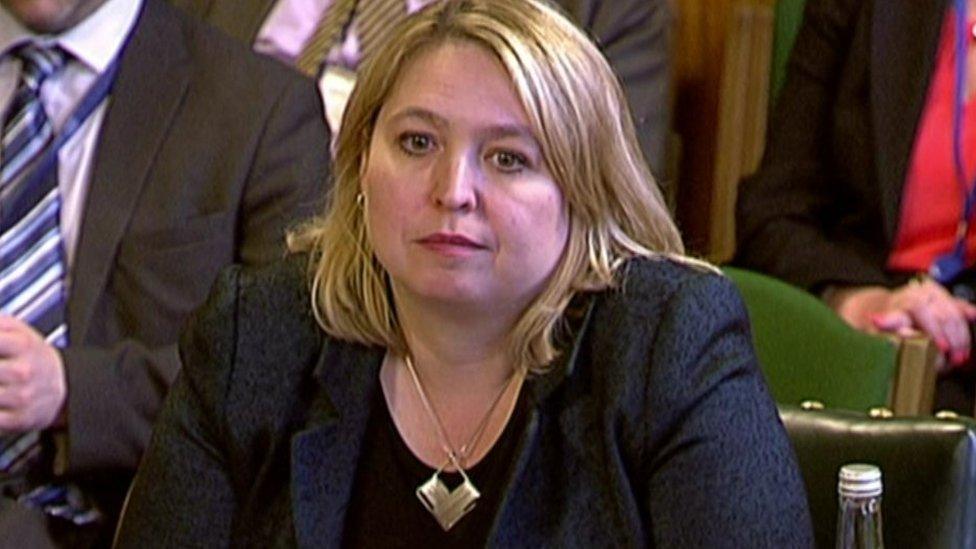Northern Ireland Assembly members' pay to be cut
- Published
Northern Ireland Assembly members' pay to be cut
The Northern Ireland Secretary is to cut Stormont Assembly members' pay.
Northern Ireland has been without an executive since January 2017 after a bitter row between the governing parties, the DUP and Sinn Féin.
Karen Bradley has also ruled out calling a fresh Assembly election and she is to bring forward legislation to allow civil servants to make decisions in the absence of devolution.
MLA pay will fall in November from £49,500 to £35,888.
The cut will happen in two stages. The first cut of £7,425 will be followed by a further reduction of £6,187 in three months' time.
Politicians have largely welcomed Karen Bradley's announcement.
The pay cut was first suggested last December in a report written for the Northern Ireland Office by the former Assembly chief executive Trevor Reaney. He recommended a pay cut until a functioning executive is restored.
Mrs Bradley made the announcement in the House of Commons.
She told MPs: "The reduction will take effect in two stages, commencing in November - it would not reduce the allowance for staff as I do not think that MLAs' staff should suffer because of the politicians' failure to form an Executive."
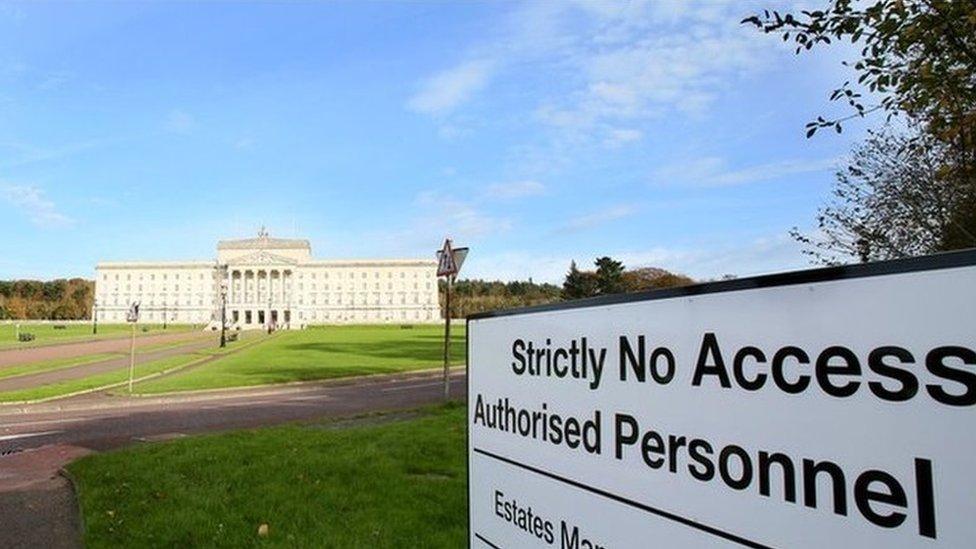
Northern Ireland has been without a functioning executive since January 2017
She also spoke about the issue of civil service decision making in the absence of an Executive.
The secretary of state told MPs: "I recognise that there is a need to provide reassurance and clarity to both the Northern Ireland Civil Service and the people of Northern Ireland on the mechanisms for the continued delivery of public services.
"So, the legislation I intend to introduce after the conference recess will also include provisions to give greater clarity and certainty to enable Northern Ireland departments to continue to take decisions in Northern Ireland in the public interest and to ensure the continued delivery of public services."
'Earliest possible opportunity'
Mrs Bradley told BBC Radio Ulster that she had not made the announcement on Thursday to "deflect" attention from former DUP minister Jonathan Bell's appearance at the RHI Inquiry on the same day.
The DUP and the Conservative Party are partners in a confidence and supply agreement at Westminster.
Mrs Bradley said: "I came to the House of Commons at the earliest possible opportunity to give this decision, which I took over the summer.
"I wanted to get here as quickly as possible."
Alliance party leader, Naomi Long, tweeted her approval of the announcement.
Allow X content?
This article contains content provided by X. We ask for your permission before anything is loaded, as they may be using cookies and other technologies. You may want to read X’s cookie policy, external and privacy policy, external before accepting. To view this content choose ‘accept and continue’.
Meanwhile, DUP leader Arlene Foster issued a statement which said: "The proposal to reduce the pay for MLAs is a sensible step as we are not able to fulfil our full role as legislators.
"The Secretary of State is right to guard against cuts to the pay and allowances for Members' staff."
Sinn Féin said Mrs Bradley was "acting under duress" in a plan "cobbled together at the last moment".
Newry and Armagh MLA Conor Murphy said he was "bemused by talks of a talks process" as his party have "heard nothing".
Mr Murphy said that the promise of a court ordered elected "prompted Karen Bradley to act".
Discussions
The secretary of state also ruled out calling an election as she is required to do under current legislation.
She told MPs: "I have not believed and do not now believe that holding an election during this time of significant change and political uncertainty would be helpful or would increase the prospects of restoring the Executive."
She added: "I intend, therefore, to introduce primary legislation in October to set aside for a limited and prescribed period the legal requirement to propose a date for a further election."

Why did Stormont collapse?
Northern Ireland's system of government, where power was shared between the DUP and Sinn Féin, collapsed after a row over a flawed green energy scheme.
DUP leader Arlene Foster was the minister at Stormont's Department of Enterprise, Trade and Investment (DETI) when it set up the Renewable Heat Incentive (RHI) scheme in 2012, and in that role she signed off on the project.
Critical flaws in the scheme meant that claimants of the scheme could earn substantial returns at the taxpayer's expense.
The most recent estimate put the projected overspend at £700m over 20 years, up from an original figure of £490m.
That led to a snap assembly election on 2 March 2017, which saw the DUP and Sinn Féin re-emerge as the largest parties, but so far they have been unable to reach a deal to restore the institutions.
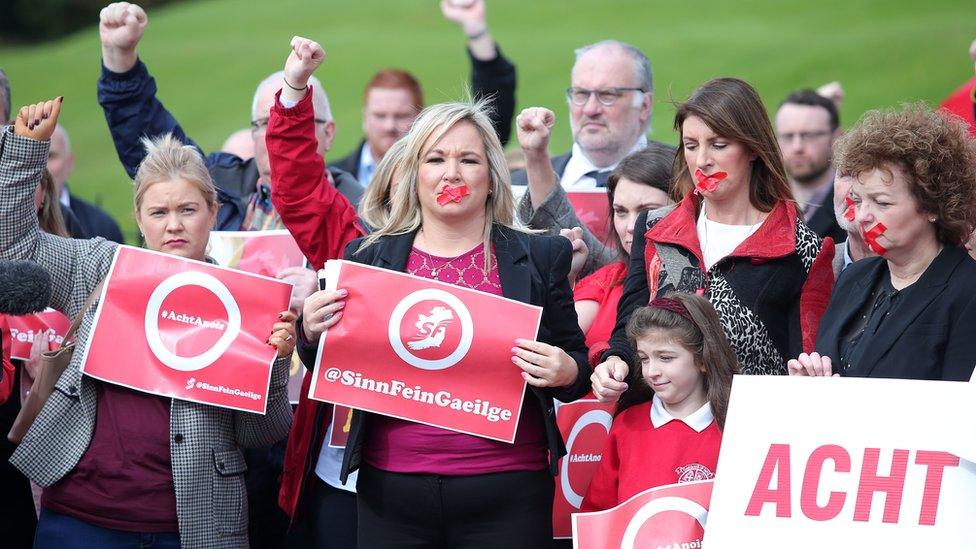
Sinn Féin wants an Irish language act but the DUP is opposed to that demand
A big sticking point is Sinn Féin's demand for legislation to give official status to the Irish language in Northern Ireland.
The party has been frank and forthright in its insistence that Stormont will not get up and running again until a standalone act is agreed.
Other issues, including rights for same-sex couples to marry also feature high on the agenda.

Mrs Bradley is to have discussions with the local parties and the Irish government in the weeks ahead about political talks aimed at restoring devolution.
The secretary of state said she would also seek the parties' views "on when and how external facilitation" should be used.
'Unique position'
There have been a number of calls for an independent talks chairperson to be appointed.
Mrs Bradley said "a functioning North-South Ministerial Council is vital to ensure NI makes the most of its unique position within the UK and in relation to Ireland."
- Published6 September 2018

- Published11 August 2018
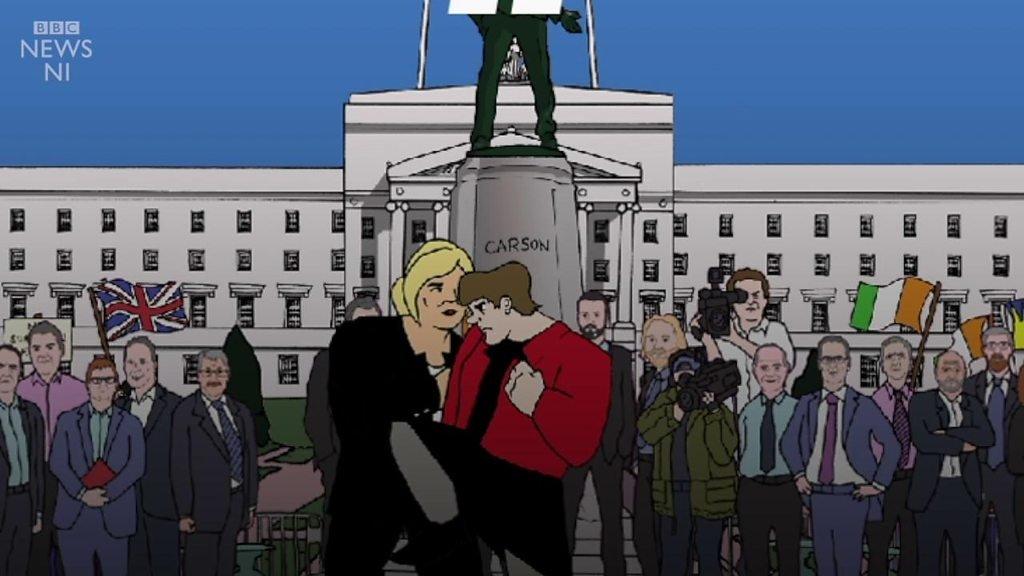
- Published9 January 2018
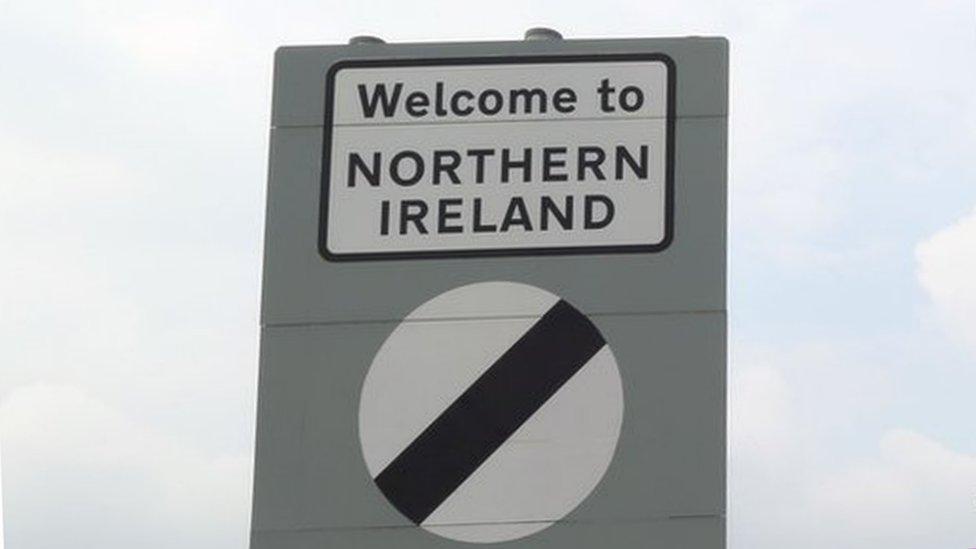
- Published22 May 2018
